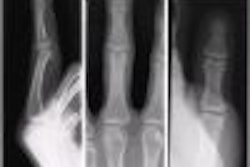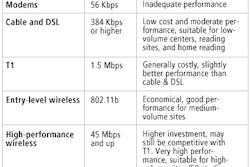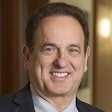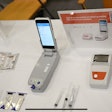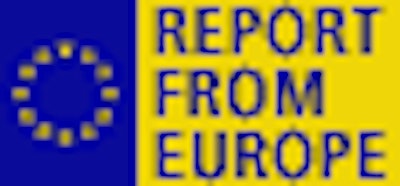
The Oxford Concise English Dictionary defines parlous as "dangerous or difficult, as well as hard to deal with." Is this an apt description for the radiology services being provided to the UK’s National Health Service (NHS)? And if so, will it be hard to deal with?
The Audit Commission, an independent body that monitors public services in Britain, seems to think so. In 1995 it performed an initial survey of radiology services (Improving Your Image) and found that:
- An estimated 20% of x-rays did not further the goal of patient care
- Faster reporting was needed -- possibly by introducing "hot reporting"
- X-ray departments unit costs for equipment and staff varied by up to 30%
- Better scheduling of appointments was desirable
- Limited investment had left some departments cramped, uninviting, and furnished with outdated equipment
The Audit Commission performed a new survey in 2000/2001, giving radiologists a chance to see if anything had improved. Released on August 8 of this year, the re-survey (Radiology, Acute Hospital Portfolio) was based on data from 246 radiology departments in England and Wales. The information was reviewed on the basis of the following criteria:
- Patients’ access to radiology services
- The way departments managed the demand for examinations
- Equipment utilization
- Staffing (productivity, vacancies, and roles)
- The impact of department size on costs
Underreported exams, equipment downtime
Results showed that 500,000 radiology patients were not on official NHS waiting lists. More worrying was that an average of 20% of the x-rays performed were not reported. In fact, 10% of radiology departments failed to report as much as a third of their results.
This meant that in some cases the exam was repeated unnecessarily, increasing the radiation dose to the patient and incurring extra costs.
The commission also found that 80% of radiology equipment was used less than 45 hours per week -- and that 41% of the equipment was out of date, failing to meet standards set by the Royal College of Radiologists (RCR). The replacement cost for this equipment is estimated at £510 million ($787 million, U.S.).
Twenty-week waiting time
Waiting times for straightforward x-rays were relatively short, although they stretched to an average of 20 weeks for MRI scans. Paul Durham, author of the report and senior manager with the Audit Commission said, "Half a million people (on the waiting list) is a large number; and although not all of them are waiting a long time, those that are, are often in distress and pain."
Although the number of patients has increased by only 2% since the 1995 report, low utilization of equipment has caused waiting times to lengthen. Equipment usage varies dramatically across England and Wales, with some MRI scanners being used for 4,000 examinations annually, while some are only used for half this number.
The UK government’s cancer director, Dr. Mike Richards, said the government has already begun tackling the problems raised by the report.
"In the 16 months since the Audit Commission study took place, the NHS has installed 80 new CT scanners and 21 new MRI scanners," Richards said. "We have also introduced major new initiatives to expand the workforce and streamline care. These initiatives include increasing training places for radiologists and radiographers and schemes to bring radiographers back into the workforce."
Professor Helen Carty, a consultant radiologist at Alder Hey Children’s Hospital in Liverpool, UK, and a senior member of the RCR told BBC News Online that, "there may be patients with diseases, who if they were diagnosed earlier, could have a better chance of survival." Carty added that she thought that the commission report was a fair summary of what was going on.
The controller of the Audit Commission, Sir Andrew Foster, said the findings highlighted the need for hospitals to learn from each other, adding that "there are concerns that some radiology services are creating a bottleneck in the system and delaying patient care."
Radiologist shortfall
Dr. Henry Irving, a consultant radiologist from St. James’ University in Leeds, UK and an official of the RCR, told Reuters Health that the biggest problem was lack of staff.
"To cope with the current workload, we need to double the numbers and that would bring us somewhere on a par with most other European countries in terms of numbers of radiologists per million of population. We are bottom of the league table, except for Turkey," he said.
Dr. John Somers, divisional clinical director for diagnostic and clinical support at Nottingham City Hospital in Nottingham, UK, said the RCR calculates that an additional 1,245 full-time-equivalent consultant radiologists would be required to meet the current workload. He calculates that in order to provide for an extended day, working seven days per week, additional 2,895 whole time equivalent radiologists will be required. The current number of radiologists working in the UK is 1,940; at the planned expansion of training positions, this level will not be met by the year 2015.
"Increased subspecialization is becoming a significant problem in providing an emergency on-call service in areas such as interventional radiology and pediatric radiology," Somers said.
"The moves in the UK to provide specialist multidisciplinary teams will further exacerbate the "de-skilling" of radiologists outside their specialist area. The provision of district wide specialist on-call services will be difficult to implement and is unlikely to solve the problems. Some services may not be available outside normal working hours."
Moreover, many departments do not have a planned equipment replacement program, and Trust’s usually have limited capital budgets, he said, which makes equipment too expensive to purchase, and results in replacement bids being rejected.
"In my view, the only solution to this problem is to take expensive items of medical equipment, such as radiology equipment, out of capital and to adopt a leasing solution from revenue," he said. "The Audit Commission identifies that 20% of radiological examinations are not justified. Our own audits in this department would support that view."
However, many clinicians are unwilling to accept limitations on their practice regardless of the evidence base for a given exam, making it difficult to implement the guidelines, Somers said. In an effort to improve service, the hospital has implemented an electronic referral system for inpatients and general practitioners, and has posted the RCR guidelines and local guidelines online for use at the time of placing an electronic request.
In the case of spinal x-rays for patients aged 20-55, the requestor is informed that the examination is probably not justified, and is directed automatically to the appropriate RCR guideline.
A scarcity of radiographers
The position with radiographers is at least as bad. Although the national figure for vacancies is 10%, some departments, particularly in Britain’s southeast, are more than 50% below established guidelines. Radiographers have made significant advances in an extended role with great success and this has in part offset the reduction in numbers of radiologists.
However, this trend has made it difficult to maintain basic radiographic services. The proposed four-tier profession is an excellent initiative, both to reward those radiographers providing specialist services, and to address the shortfall in degree radiographers to maintain essential radiographic services.
Paucity of PACS
David Allison is Professor Emeritus of Imperial College School of Medicine in London -- considered the pioneer of PACS in the UK. In a recent conversation he expressed disappointment in the fact that despite an early lead, the UK has still not exploited the immense benefits of PACS, particularly as it can alleviate the problems created by limited resources.
Somers agreed with Allison’s assessment of the imperative for PACS adoption in the UK.
"It is essential that there is significant investment in IT systems to support radiology including PACS," he said. "I agree with the Audit Commission that central electronic booking and results reporting are essential. We are implementing such systems in this Trust. I am heartened by the rumor that these systems may be implemented nationally as part of the government initiative to improve information technology in the NHS."
The latest Audit Commission report shows that only 29% of departments were able to provide referring clinicians with access to some types of digital images, although most (69%) could give referring clinicians access to electronic versions of written reports. The capacity to send images and reports together electronically was seen in a tiny 6% of the total facilities surveyed.
"Some of the best radiology in the world is practised in the UK and I would not like anyone to think our standards are dropping," Allison said. "The NHS, however, suffers from a considerable shortage of radiologists, a situation that has to be corrected with some urgency. The provision of on-call (out-of-hours) services is a particularly thorny problem -- especially with regard to interventional radiology, an increasingly important part of modern medicine.
He added that the heavy call burden placed on the shoulders of a few highly trained interventionists cannot be alleviated by asking less specialized interventionists to undertake responsibilities they do not feel confident to perform safely.
"This issue of interventional training is being addressed, but it is undeniable that the provision of emergency interventional services is currently a serious problem in many of our hospitals," Allison said.
It would seem that the years of underinvestment by the British government in equipment, radiologists, and radiographers -- together with a lack of foresight and understanding regarding patient demand for speedier access to a wide range of imaging exams -- has given the UK the radiology service it deserves.
By Peter StaffAuntMinnie.com contributing writer
September 24, 2002
Peter Staff is managing director of Xograph Imaging Systems, a privately owned medical imaging company in the UK. He has more than 30 years experience in the radiology industry. Staff is also a member of the UK Parliament’s Associate Parliamentary Health Forum, and sits on the British Institute of Radiology’s Industry Committee.
Related Reading
Do private imaging centers have a future in the U.K.? August 15, 2002
Radiology service not keeping up with routine demand in UK, August 8, 2002
UK's imaging demands exceed capacity of personnel, September 12, 2001
U.K. radiologists grapple with privacy act, August 13, 2001
Europe still lags in communication technology, May 24, 2001
Copyright © 2002 AuntMinnie.com






